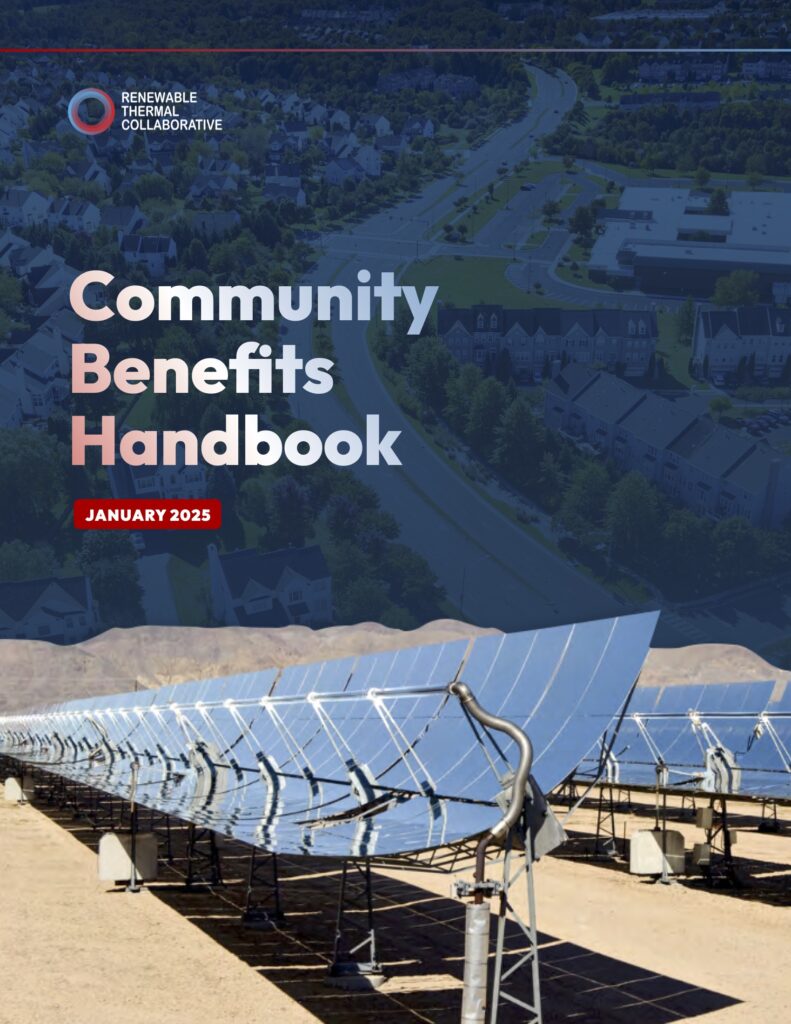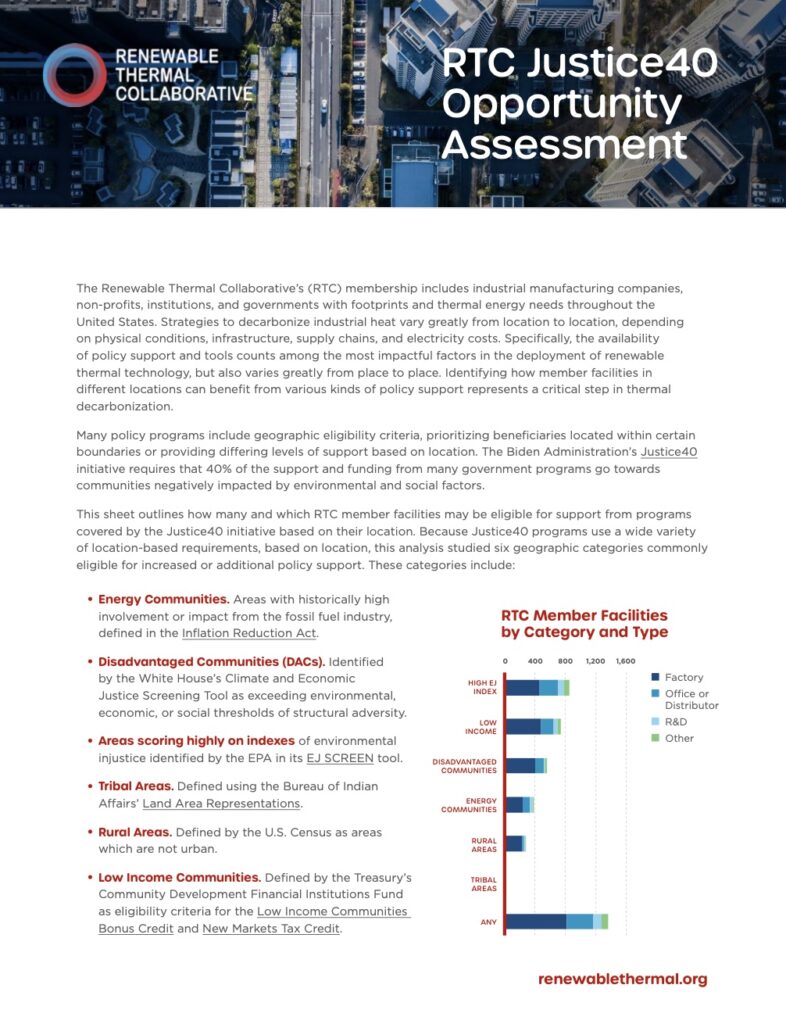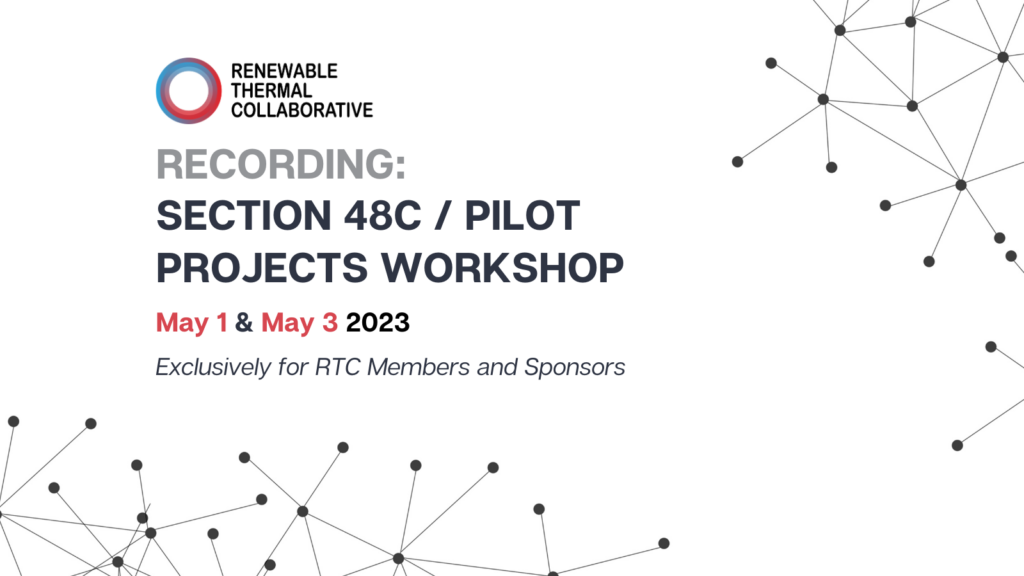Community Benefits
What is the RTC doing?
Prioritizing Community Benefits
In October 2023, the RTC launched its Community Benefits Advisory Board (CBAB) to advance social, environmental, and economic co-benefits for workers and communities through the renewable thermal energy transition. The CBAB supports RTC Members, Solutions Providers, and staff with advice and guidance in building relationships with community and worker stakeholders.
CBAB Members come from varied backgrounds—community-based organizations, academia, non-profit, public sector, philanthropy, and the private sector—and bring deep expertise and experience from the fields of clean energy, environmental and climate justice, labor and workforce development, racial and gender equity, and industrial decarbonization.
CBAB Members include:
- Trina Mallik, Vice President of Programs, Institute for Sustainable Communities (co-chair)
- Jerome Shabazz, Executive Director, Overbrook Environmental Education Center
- Eddie Guerra, Vice-President, Rizzo International
- Sacha-Rose Phillips, Program Officer, McKnight Foundation
- Alexa White, Co-founder, AYA Institute
- Thom Kay, Program Manager, BlueGreen Alliance (co-chair)
Selected materials and webinars
Community Benefits Handbook
The RTC Community Benefits Handbook provides a comprehensive, practical guide to help organizations navigate the complex process of community collaboration and equity-focused project planning. This essential resource offers a step-by-step approach to community engagement that helps organizations understand how proactive community partnerships de-risk projects, learn to conduct thorough community impact assessments, develop intentional engagement strategies, and ultimately co-create community benefit plans that deliver tangible economic, environmental, and social value. Designed for renewable thermal project developers, sustainability professionals, and organizational leaders, this handbook serves as a tool for building authentic, mutually beneficial community relationships that advance both organizational goals and local community well-being.
See also:
Justice40 Opportunity Assessment
The Biden Administration’s Justice40 initiative requires that 40% of the support and funding from many government programs go towards communities negatively impacted by environmental and social factors. This mapping analysis outlines how many and which RTC Member facilities may be eligible for support from programs covered by Justice40. This assessment illuminated the opportunity for the RTC to help connect Members with the policy supports available and simultaneously advance company sustainability goals, national emissions targets, and justice objectives.
Section 48C / Pilot Projects Workshop
In May 2023, the RTC hosted workshops to support RTC Members’ industrial decarbonization pilot projects, especially those which could receive funding from Section 48C federal tax credits. The workshops focused heavily on best practices for compiling community benefits plans and concept papers. They also outlined Sec. 48C project requirement and an RTC mapping analysis of energy communities, and involved curated, 1:1 networking between RTC Members and Solutions Providers.



